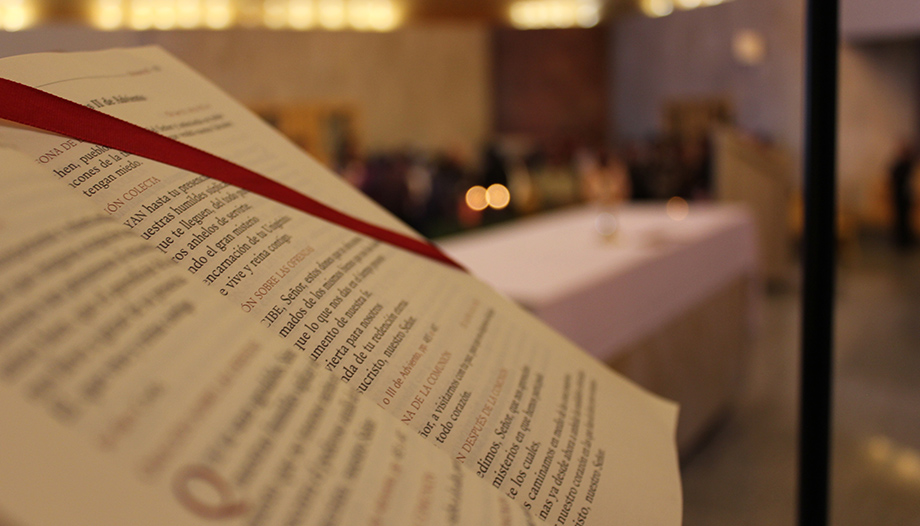Normally we expect the Old Testament to be rather harsh, and the New Testament to be softer and gentler. But today's readings seem to be just the opposite. The first reading is a delightful text that shows us the new order that the Messiah will bring: animals will live in peace with each other, even those that tend to eat or harm others. Wolves will be at peace with lambs, children with poisonous snakes. And he concludes: "No one shall cause harm or havoc throughout my holy mountain."
Instead, the Gospel seems more like a harsh passage from the Old Testament. St. John the Baptist warns the Jewish leaders of retribution, of judgment with punishment to come. The axe is placed at the base of the tree, and ready to begin chopping down, for "any tree that does not bear good fruit is cut down and thrown into the fire".. Christ is described as a farmer willing to separate the good wheat from the chaff, which is its outer covering. The wheat will be taken to God's granary, where "will burn the straw with a fire that will not go out".
Why is the Gospel so hard? We must remember that the Baptist is speaking to the often hypocritical Jewish rulers. And the few times we see Jesus speak so harshly is when he is addressing them. In fact, it seems that the only things that anger Christ are hypocrisy, hardness of heart and arrogance. Jesus does not care about weakness. What matters to him are hard and proud hearts.
John warns the scribes and Pharisees to repent, and tells them: "And do not justify yourselves inwardly, thinking, 'We have Abraham for our father.' For assuredly, I say to you, God is able to raise up children for Abraham from these stones.". A warning against presumptuous arrogance, which is a common spiritual disease, also among Catholics. "I am well connected. I come from a well-known Catholic family. My uncle is a priest."
John teaches that Jesus baptizes with the Holy Spirit and with fire. If we try to be honest with Christ and with ourselves, this is a purifying fire, like the fire that burns away the imperfections of gold. The trials and difficulties of life can be a purifying fire. The better we make the most of them, the less we will need to go through the fire of purgatory. So let us not run away from or reject the difficulties of life. Let us make better spiritual use of them.
In short, the Gospel speaks to us of the importance of humility and sincerity. To be sincere with ourselves, with God, with others and with God's representatives. Not to give a false impression of ourselves. To reject all spectacle. We do this, above all, through confession and spiritual direction, in which we face and accept our misery. And thus we open ourselves to healing and to God's grace.
The homily on the readings of Sunday II of Advent
The priest Luis Herrera Campo offers its nanomiliaa small one-minute reflection for these readings.









